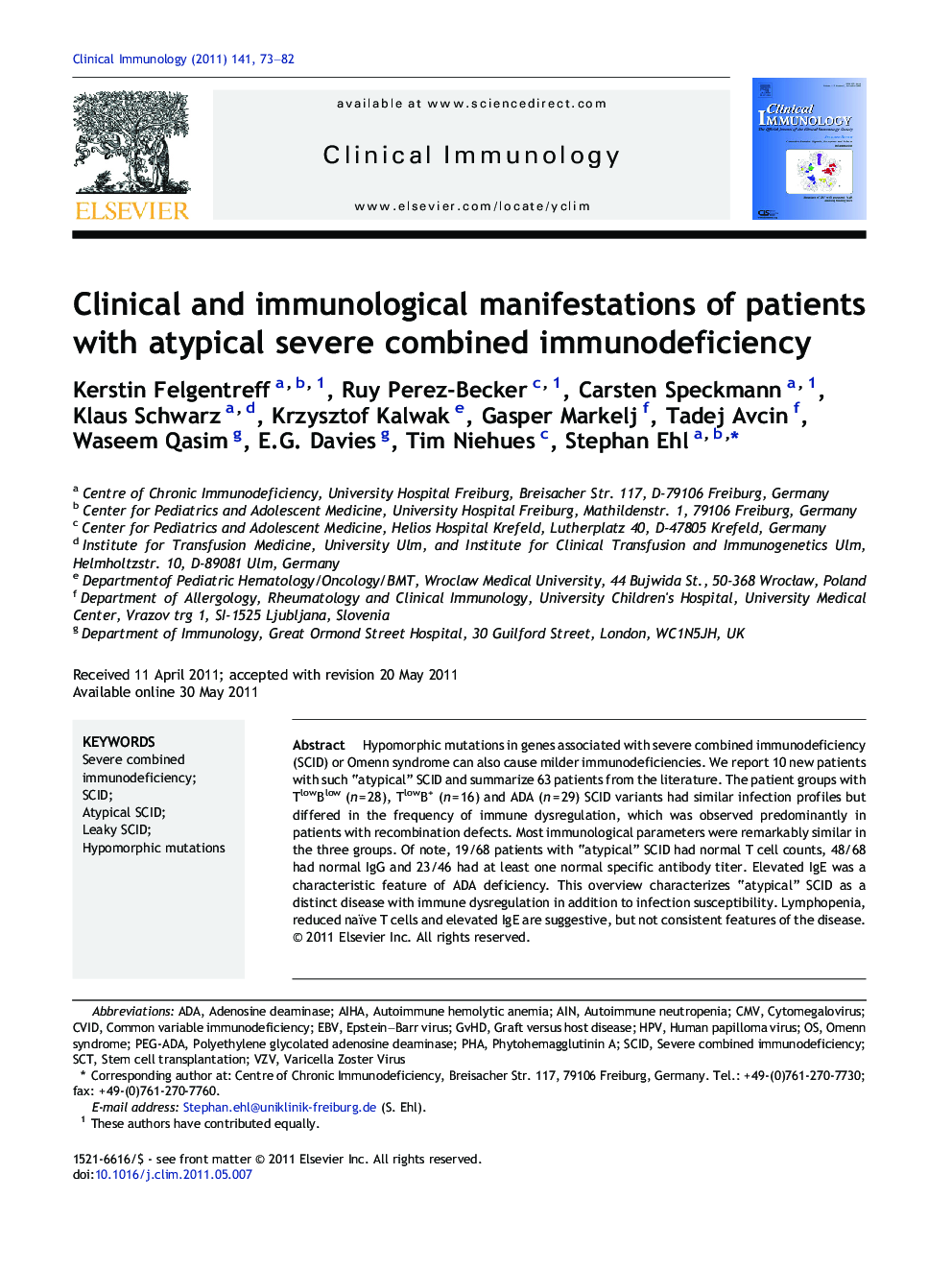| Article ID | Journal | Published Year | Pages | File Type |
|---|---|---|---|---|
| 6087790 | Clinical Immunology | 2011 | 10 Pages |
Hypomorphic mutations in genes associated with severe combined immunodeficiency (SCID) or Omenn syndrome can also cause milder immunodeficiencies. We report 10 new patients with such “atypical” SCID and summarize 63 patients from the literature. The patient groups with TlowBlow (n = 28), TlowB+ (n = 16) and ADA (n = 29) SCID variants had similar infection profiles but differed in the frequency of immune dysregulation, which was observed predominantly in patients with recombination defects. Most immunological parameters were remarkably similar in the three groups. Of note, 19/68 patients with “atypical” SCID had normal T cell counts, 48/68 had normal IgG and 23/46 had at least one normal specific antibody titer. Elevated IgE was a characteristic feature of ADA deficiency. This overview characterizes “atypical” SCID as a distinct disease with immune dysregulation in addition to infection susceptibility. Lymphopenia, reduced naïve T cells and elevated IgE are suggestive, but not consistent features of the disease.
Research highlights⺠We provide an overview of 73 patients with mutations in SCID associated genes causing milder immunodeficiencies. ⺠Atypical SCID was diagnosed in all age groups, frequently with a significant delay after initial clinical presentation. ⺠Manifestations of immune dysregulation were frequently observed and most common in patients with recombination defects. ⺠In all patients with infections, immune dysregulation and evidence of impaired T cell immunity, “atypical SCID” is a relevant differential diagnosis.
